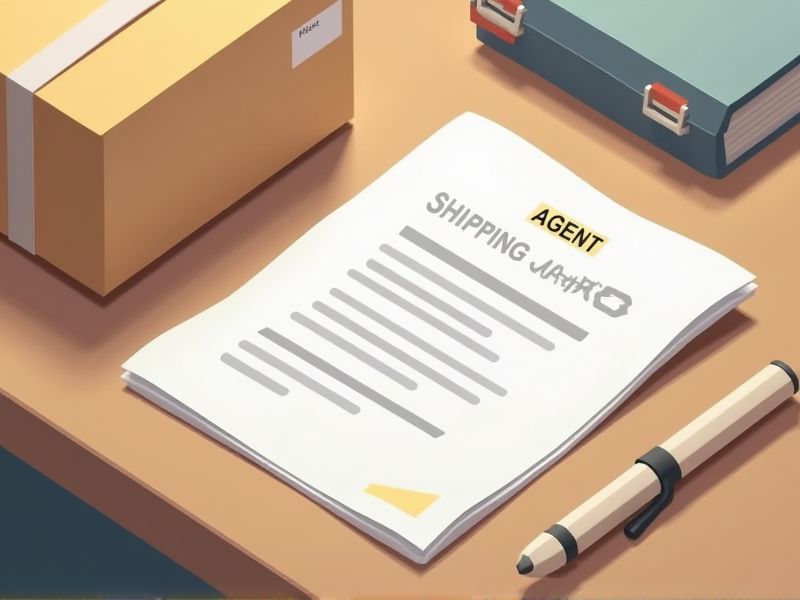
Shipping agents are pivotal in ensuring the smooth transfer of goods across borders, necessitating a thorough understanding of shipping regulations and logistics management. Certifications validate an agent's proficiency in dealing with complex shipping networks, which include knowledge of legal requirements, customs procedures, and safety standards. These credentials enhance credibility with clients and partners, reinforcing the agent's capacity to handle international trade and commerce effectively. Some vital certifications for a shipping agent include the International Forwarder Certificate, Customs Brokerage License, and Dangerous Goods Handling Certification.
IMO International Maritime Dangerous Goods (IMDG) Certification
The IMO International Maritime Dangerous Goods (IMDG) Certification is essential for shipping agents to ensure the safe and compliant transportation of hazardous materials across international waters. This certification helps mitigate potential risks and accidents by enforcing strict adherence to global safety standards and regulations. By obtaining the IMDG certification, shipping agents enhance their credibility and demonstrate their commitment to safety and regulatory compliance. Failure to possess this certification may lead to legal liabilities, fines, and potential harm to the environment and human health.
International Ship and Port Facility Security (ISPS) Certification
ISPS Certification enhances security within international shipping by ensuring compliance with global maritime security standards. Shipping agents require this certification to facilitate smoother trade operations and reduce the risk of terrorism at sea. Compliance with ISPS standards helps protect vessels and port facilities, safeguarding global supply chains. This certification fosters trust among international partners, promoting efficient trade and cooperation in the maritime industry.
SOLAS Training Certificate
Obtaining a SOLAS (Safety of Life at Sea) Training Certificate ensures a shipping agent is knowledgeable about international maritime safety regulations, crucial for compliance and operational safety. Mismanagement or lack of awareness about safety protocols could lead to accidents or legal repercussions, impacting the reputation and functioning of the shipping company. A shipping agent equipped with SOLAS training is better positioned to liaise effectively with maritime authorities, ensuring smooth operations. The certification validates the shipping agent's capability in crisis management and safety strategy implementation, enhancing trust with clients and stakeholders.
Port Facility Security Officer (PFSO) Certification
Shipping agents require Port Facility Security Officer (PFSO) certification to ensure compliance with the International Ship and Port Facility Security (ISPS) Code. Certification equips agents with the ability to effectively assess and mitigate security risks within port facilities. This qualification enhances collaboration with maritime security stakeholders, facilitating smooth shipping operations. Certified PFSOs contribute to the safe and secure handling of goods, reducing potential disruptions and economic losses.
Customs Clearance Certification
Customs Clearance Certification ensures that shipping agents understand and comply with international trade laws, preventing legal disputes. This certification equips agents to efficiently facilitate the movement of goods across borders, minimizing delays. It verifies that agents are knowledgeable about documentation processes, reducing the risk of errors and penalties. Without this certification, a shipping agent's credibility and ability to effectively manage customs requirements could be compromised.
IATA Dangerous Goods Regulations (DGR) Certification
IATA Dangerous Goods Regulations (DGR) Certification ensures that shipping agents comply with international safety and legal standards, which mitigates the risks associated with the transport of hazardous materials. It provides agents with the necessary knowledge to correctly classify, pack, mark, and label dangerous goods, reducing the chances of accidents during transit. By adhering to these regulations, shipping agents contribute to the safe and efficient transportation of products, which strengthens customer trust and business reputation. Non-compliance can lead to costly fines and disruptions, making the certification not only crucial for safety but also for financial stability.
Certified International Freight Forwarder (CIFF) Certification
Certified International Freight Forwarder (CIFF) Certification enhances a shipping agent's credibility in the global logistics industry by validating their expertise. It equips agents with up-to-date knowledge of international shipping regulations, which reduces the risk of compliance issues. The certification improves operational efficiency by training agents in best practices for handling complex shipping logistics. Clients are more likely to trust and engage with agents who have CIFF Certification, which can lead to increased business opportunities.
Certificate in International Trade and Logistics
A Certificate in International Trade and Logistics provides foundational knowledge crucial for understanding complex global trade regulations, directly impacting a shipping agent's ability to navigate international transactions efficiently. With this certification, agents gain insights into logistics operations, which enhance their capacity to manage supply chain processes, leading to improved shipment coordination. Legal and compliance aspects of international trade are covered, empowering shipping agents to mitigate potential legal issues and ensure adherence to global trade standards. Proficiency in these areas allows agents to optimize transportation strategies, resulting in cost-effective and timely delivery solutions.
Certificate in Supply Chain Management
For shipping agents, a Certificate in Supply Chain Management enhances their understanding of logistics processes, ensuring more efficient shipments. Knowledge gained from the certification helps them anticipate and mitigate potential disruptions, leading to smoother operations. Proficiency in supply chain principles allows agents to negotiate better deals and optimize cost management. In a competitive market, certified agents often gain a trust advantage, fostering stronger partnerships with clients.
Certified Customs Specialist (CCS) Certification
A Shipping Agent deals with complex customs regulations and the CCS certification enhances their ability to navigate these intricacies effectively. Obtaining the CCS certification often leads to a deeper understanding of compliance requirements, reducing the risk of costly errors. Certification typically elevates a Shipping Agent's professional credibility, which can improve client trust and business opportunities. Staying updated with the latest standards and practices through certification is crucial as global trade regulations frequently evolve.
Summary
You can expect enhanced trust from clients when a Shipping Agent obtains certifications, as they signal adherence to industry standards. This trust often leads to increased business opportunities and stronger client relationships. Certifications can also streamline processes, reducing errors and improving operational efficiency. These improvements often result in cost savings and a competitive advantage in the market.
